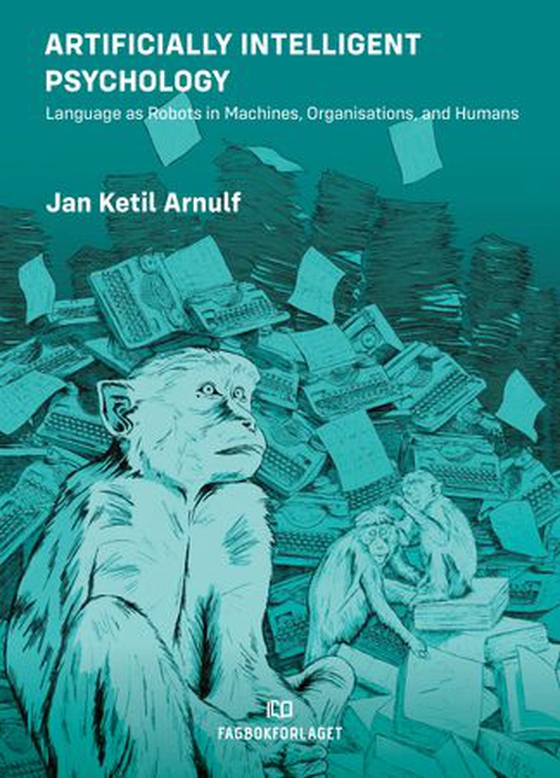Jan Ketil Arnulf
(forfatter)
Artificially intelligent psychology ebok
299,-
Language technologies and artificial intelligence are rapidly transforming the workplace. New services emerge almost every day, but what are the principles behind machines (and brains) that can talk? This book takes you behind the headlines and into the core of the technology. It explains how machines learn to speak, how this relates to language in humans, and what the implications are for organi…
Language technologies and artificial intelligence are rapidly transforming the workplace. New services emerge almost every day, but what are the principles behind machines (and brains) that can talk? This book takes you behind the headlines and into the core of the technology. It explains how machines learn to speak, how this relates to language in humans, and what the implications are for organisations and management.
With humour and insight, the author opens the doors to a new frontier between humans and machines. You will gain an understanding of what happens in our minds, in the algorithms, and in organisations. The book provides you with a framework for understanding and navigating a reality where language has become digital – and where machines respond as extensions of your own mind.
Are you in control – or are you being controlled? What happens to leadership, trust and meaning in a world where technology both speaks and makes decisions? Could a language robot be your boss, your therapist – or even your romantic partner? With examples from neurobiology, leadership coaching, algorithms and even ticks, the book invites a thorough – and at times uncomfortable – reflection: How can machines contribute to your intelligence? Or will machines become smart at our expense because we stop asking questions?
This is a book for anyone who wants to understand more before technology starts to think for them.
Ebok
299,-
Undertittel
language as robots in machines, organisations, and humans
Forlag
Fagbokforlaget
Utgitt
28.10.2025
Sjanger
Dokumentar og fakta
Språk
English
Format
epub
DRM-beskyttelse
LCP
ISBN
9788245061147
Language technologies and artificial intelligence are rapidly transforming the workplace. New services emerge almost every day, but what are the principles behind machines (and brains) that can talk? This book takes you behind the headlines and into the core of the technology. It explains how machines learn to speak, how this relates to language in humans, and what the implications are for organisations and management.
With humour and insight, the author opens the doors to a new frontier between humans and machines. You will gain an understanding of what happens in our minds, in the algorithms, and in organisations. The book provides you with a framework for understanding and navigating a reality where language has become digital – and where machines respond as extensions of your own mind.
Are you in control – or are you being controlled? What happens to leadership, trust and meaning in a world where technology both speaks and makes decisions? Could a language robot be your boss, your therapist – or even your romantic partner? With examples from neurobiology, leadership coaching, algorithms and even ticks, the book invites a thorough – and at times uncomfortable – reflection: How can machines contribute to your intelligence? Or will machines become smart at our expense because we stop asking questions?
This is a book for anyone who wants to understand more before technology starts to think for them.
Ingen anmeldelser ennå








